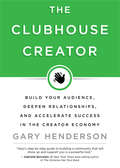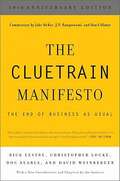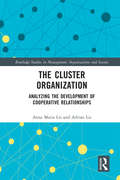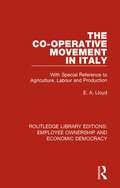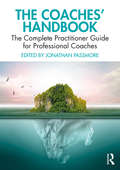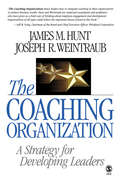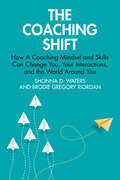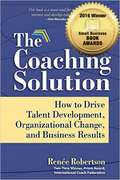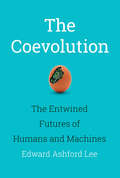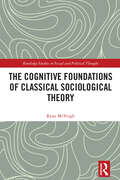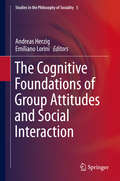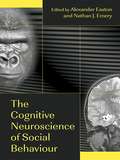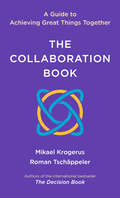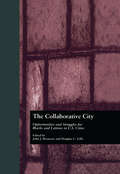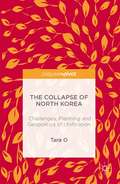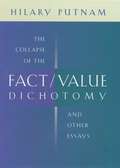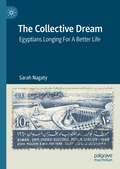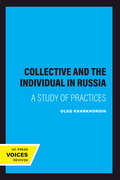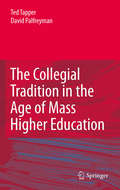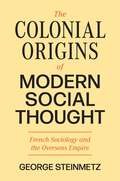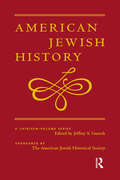- Table View
- List View
The Clothes Make the Girl (Look Fat)?: Adventures and Agonies in Fashion
by Brittany GibbonsA sartorial follow-up to her hilarious memoir in stories, Fat Girl Walking, internet personality Brittany Gibbons once again deep dives into the world of the plus size woman, this time chronicling her love/hate (but mostly hate) relationship with what fashion. From Pinterest boards and Instagram posts to shop windows and ad campaigns, fashion is everywhere. We shop and dress for practical reasons like job interviews or to make a good impression at the board meeting. We shop and dress for more adventurous reasons—for dates, to woo a lover, to catch someone&’s eye. Clothes are armor for women, and we wrap a lot of meaning in what we choose to wear. As plus-size spokesmodel and blogger Brittany Gibbons knows, what we choose to wear is especially important, and especially emotional, for curvy women. This isn&’t only because curvy women feel underrepresented and underserved by the fashion world. For the curvy woman who struggles with feelings of self-worth and a lack of confidence the feeling of "why bother" can come crashing in. You can&’t help but think "wouldn&’t leggings and a slouchy sweater just be easier?" Especially when we, like every other woman on the planet, are facing greater, real-life obstacles like raising kids, attending college, keeping your marriage together, paying bills, and a myriad of other daily struggles. Everyone has those days where they hate their body, they hate their clothes, but self-confidence and strength can come from a great outfit. Brittany is determined to help women, curvy and otherwise, embrace fashion and all the bumps and lumps that come with it. An "overdue love letter" to her body, Brittany delves into the hilarity and the humility of her quest to find her own personal style—to break out of a rut of maternity underwear and men&’s undershirts once and for all. From wardrobe malfunctions, to fashion advice, to mom bodies and the perfect pose, The Clothes Make the Girl (Look Fat)? is the empowered battle cry all women deserve.
The Clubhouse Creator: Build Your Audience, Deepen Relationships, and Accelerate Success in the Creator Economy
by Gary HendersonThe go-to entrepreneurial guide for establishing your platform, building your audience, and monetizing your skills and services on Clubhouse, the audio-only social media app.On a social media app with more than 10 million users and a plethora of dynamic voices jostling for attention, how do you stand out from the noise? How do you draw people to your particular stage, and how do you convert the casual sharing of your unique expertise into a tangible revenue stream?This is the creator economy that we live in, and Clubhouse is the most effective place to organically grow your audience with the most basic of business resources: your networking capability.In The Clubhouse Creator, Gary Henderson, founder of DigitalMarketing.org, reveals his tried-and-true strategies on Clubhouse for:· finding your niche audience· integrating into the flow of social circles and conversations· conveying the value of your goods or services· monetizing your knowledge and expertiseBy using Gary's 7-Figure Clubhouse Funnel, you will be able to generate tangible sales and revenue and establish a core element of your marketing strategy. Now is the time to step fully into an abundance mindset and accelerate your success.
The Cluetrain Manifesto: The End of Business as Usual
by David Weinberger Christopher Locke Fredrick Levine David SearlsThe book provides a contrast in business and brand promotions from conventional methods to the internet age, where the conversations of connectedness have changed both the business we do, and the way its done.
The Cluster Organization: Analyzing the Development of Cooperative Relationships (Routledge Studies in Management, Organizations and Society)
by Anna Maria Lis Adrian LisCluster organizations are becoming more and more popular, both in developing and developed countries. Considering the development of cluster policy and the related dynamic growth of cluster initiatives in the world, the lack of sufficient knowledge on the development of cooperation in cluster organizations inhibits their development and, in many cases, causes their complete disintegration. The book provides new important elements to the current system of knowledge, filling in cognitive and research gaps in the scientific literature on problems related to cooperation in cluster organizations. The most valuable features for the reader concern the epistemological, methodological, and application aspects. The new element includes a theoretical concept, which refers to the trajectory of development of cooperative relationships in cluster organizations that facilitates the understanding and explanation of mechanisms responsible for cooperation in such organizations. The concept also has great practical advantages, especially for people implementing the idea of "clustering": coordinators, facilitators, and members of cluster organizations as well as politicians and public authorities are responsible for shaping and implementing the cluster policy. It will be of value to researchers, academics, and students in fields with an interest in organizational studies, management of innovation and technology, strategic management, industrial economics, and economic geography.
The Co-operative Movement in Italy: With Special Reference to Agriculture, Labour and Production (Routledge Library Editions: Employee Ownership and Economic Democracy #4)
by E. A. LloydThis title, originally published in 1925, provides a scientific exploration of some of the forms of co-operative organisation which had attained considerable development in other countries, but were little known to English students of the movement. This account of the co-operative movement in Italy will be of interest to students of economic democracy and economic history.
The Coaches' Handbook: The Complete Practitioner Guide for Professional Coaches (Wiley-blackwell Handbooks In Organizational Psychology Ser.)
by Jonathan PassmoreThis comprehensive practitioner guide provides an accessible evidenced based approach aimed at those new to coaching and who may be undertaking coach training for a certificate in coaching or professional credentials or accreditation with the AC, ICF, EMCC, CMI or ILM. The book will also be useful for those who want to enhance their coaching skills. The Coaches Handbook is edited by Jonathan Passmore, an internationally respected expert and executive coach, with chapters from leading coaching practitioners from across the world. The book is divided into seven sections. Section one examines the nature of coaching, its boundaries, the business case for coaching and how organisations can build a coaching culture. Section two focuses on deepening our self-understanding and understanding our clients, the non-violent communications mindset and the coaching relationship. Section three focuses on the key skills needed for coaching including goal setting, powerful questions, active listening, using direct communications and the role of silence, emotions and challenge in coaching. Section four offers a range of coaching approaches including behavioural, person-centred, solution-focused, psychodynamic, neuroscience, narrative, positive psychology, out-door eco-coaching, team coaching, careers coaching and integrated coaching. Section five focuses on fundamental issues in coaching such as ethics and contracting and evaluation. Section six explores continuous professional development, reflection and the role of supervision, as well as how to establish your coaching business. The final section contains a host of coaching tools which practitioners can use to broaden their practice. Unique in its scope, this key text will be essential reading for coaches, academics and students of coaching. It is an important text for anyone seeking to understand the best practice approaches that can be applied to their coaching practice, including human resources, learning and development and management professionals, and executives in a coaching role.
The Coaching Organization: A Strategy for Developing Leaders
by James M. Hunt Joseph R. WeintraubThe Coaching Organization: A Strategy for Developing Leaders is the only book to provide practical advice on how a company can strategically manage coaching initiatives that strengthen organizations and enhance employee engagement and growth. Authors James M. Hunt and Joseph R. Weintraub offer best practices to help organizations deploy developmental coaching that drives leadership and employee effectiveness. Key Features: Offers a strategic view of how to manage developmental coaching: Coaching initiatives are often deployed on an ad hoc and unmanaged basis and as such often yield disappointing results. This book provides a guide for the strategic management of coaching initiatives including executive coaching, internal coaching, coaching by managers, and peer coaching, so as to maximize their impact and value. Presents credible and practical examples of successful coaching initiatives: Case-based research conducted by leading academics and practitioners illustrates how organizations can link coaching initiatives and organizational success. Case studies from organizations such as Whirlpool, Wachovia, Children′s Hospital Boston, and Citizens Financial Group offer clear guidance on the organizational use of coaching. Identifies assessment tools for developing and maintaining coaching initiatives: Organizational and coaching competency tools are provided to help design appropriate organizational coaching initiatives, select expert coaches, and train internal peer coaches and coaching managers. In addition, the book offers no-cost and low-cost ideas to help organizations spend less money while achieving better results. Intended Audience: This is an excellent text for advanced undergraduate and graduate courses in Human Resource Management, Human Resource Development, Industrial and Organizational Psychology, Organizational Effectiveness, Executive Coaching, and Leadership. It is also a valuable resource for executives, managers, and human resource professionals.
The Coaching Shift: How A Coaching Mindset and Skills Can Change You, Your Interactions, and the World Around You
by Brodie Gregory Riordan Shonna D. WatersThe Coaching Shift: How A Coaching Mindset and Skills Can Change You, Your Interactions, and the World Around You offers practical guidance on how to adopt a coaching mindset and how to build a coaching skill set to unlock better communication, stronger relationships, and high performance in others. Accessible and practical, the book draws on research from coaching, neuroscience, cognitive psychology, social psychology, and industrial-organizational psychology to provide the best science-based practices that can be applied in work and life. It presents core coaching skills that anyone can develop and use to improve their own emotions, thoughts, behaviors, and interactions with others. It uses levels of analysis to help readers think about key concepts first in relation to themselves, and then in 1:1 interactions, group and team dynamics, organizational-level impact, and beyond. The book offers specific and tangible advice for readers to develop their coaching and communication skills, while also developing a deeper understanding of themselves. The Coaching Shift, with its clear tone, anecdotal references, and practical application, will be essential reading for coaches in practice and in training, and for academics and students of coaching and coaching psychology. These concepts and practices are also relevant for anyone who wants to have more effective interactions with others.
The Coaching Solution: How to Drive Talent Development, Organizational Change, and Business Results
by Renee RobertsonNational Indie Excellence Awards, Finalist, 2017: Business General. <P><P>Based on the author's firsthand experience during the merger of telecom giants MCI and Verizon, and the implosion of WorldCom, this book teaches how internal coaching programs, when executed properly, can retain and develop talent in the face of rapid change and many unknowns. <P><P>Part autobiography, part how-to manual and workbook, The Coaching Solution provides corporate managers, executives and coaches with a highly personalized, step-by-step approach to building an effective coaching program. <P><P>As a former talent management executive, Robertson shares her best practices and lessons learned. Her goal is to promote coaching inside organizations and to guide those interested in building high-performance employees, teams and organizations.
The Coevolution: The Entwined Futures of Humans and Machines (The\mit Press Ser.)
by Edward Ashford LeeShould digital technology be viewed as a new life form, sharing our ecosystem and coevolving with us?Are humans defining technology, or is technology defining humans? In this book, Edward Ashford Lee considers the case that we are less in control of the trajectory of technology than we think. It shapes us as much as we shape it, and it may be more defensible to think of technology as the result of a Darwinian coevolution than the result of top-down intelligent design. Richard Dawkins famously said that a chicken is an egg's way of making another egg. Is a human a computer's way of making another computer? To understand this question requires a deep dive into how evolution works, how humans are different from computers, and how the way technology develops resembles the emergence of a new life form on our planet.Lee presents the case for considering digital beings to be living, then offers counterarguments. What we humans do with our minds is more than computation, and what digital systems do—be teleported at the speed of light, backed up, and restored—may never be possible for humans. To believe that we are simply computations, he argues, is a “dataist” faith and scientifically indefensible. Digital beings depend on humans—and humans depend on digital beings. More likely than a planetary wipe-out of humanity is an ongoing, symbiotic coevolution of culture and technology.
The Cognitive Foundations of Classical Sociological Theory (Routledge Studies in Social and Political Thought)
by Ryan McVeighThe Cognitive Foundations of Classical Sociological Theory explores the role that understandings of mind and brain played in the development of sociological theory. It isolates five key authors in the classical tradition and comprehensively explores their oeuvres for moments where they reflect on, engage with, and build from topics related to cognition, placing their work in contact with research today to critically determine areas of relevance, refutation, or revision. Showing how understandings of mind, brain, and body grounded the production of early sociological thought, the book draws attention to the foundational role theories of cognition played in the emergence of sociology as a distinct field of study. With chapters on Comte, Marx, Weber, Durkheim, and Mead, The Cognitive Foundations of Classical Sociological Theory constitutes a novel and timely engagement with canonical social theory, extending its application to contemporary social life. It will therefore appeal to scholars of sociology and psychology with interests in classical social theory, cognition, embodiment, and sociality.
The Cognitive Foundations of Group Attitudes and Social Interaction
by Andreas Herzig Emiliano LoriniThis book offers a widely interdisciplinary approach to investigating important questions surrounding the cognitive foundations of group attitudes and social interaction. The volume tackles issues such as the relationship between individual and group attitudes, the cognitive bases of group identity and group identification and the link between emotions and individual attitudes. This volume delves into the links between individual attitudes (such as beliefs, goals and intentions) and how they are reflected in shared attitudes where common belief, collective acceptance, joint intentions, and group preferences come into play. It pursues answers to the connections between trust and beliefs, goals and intentions and attempts to investigate questions such as: does trust have an affective component and how it may relate to hope and fear? The volume also scrutinizes game theory and questions whether it can satisfactorily explain and model social interaction and if there may be any concepts which are not addressed by the current theory. Contributors are derived from disciplines including philosophy, economics, psychology, logic and computer science. Interdisciplinary in scope and comprehensive detail, this volume integrates a variety of approaches - philosophical, psychological and artificial intelligence - to strategic, normative and emotional aspects of social interaction.
The Cognitive Neuroscience of Social Behaviour
by Alexander Easton Nathan J. EmeryThe potential for cognitive neuroscience to shed light on social behaviour is increasingly being acknowledged and is set to become an important new approach in the field of psychology. Standing at the vanguard of this development, The Cognitive Neuroscience of Social Behaviour provides a state-of-the-art contribution to a subject still in its infancy. Divided into three parts, the book presents an overview of research into neural substrates of social interactions, the cognitive neuroscience of social cognition and human disorders of social behaviour and cognition.
The Collaboration Book: A Guide to Achieving Great Things Together
by Roman Tschäppeler Mikael KrogerusA pocket-sized guide to teamwork and group decision-making, from the authors of the international bestseller The Decision Book. What makes a great team? How do we reach consensus and have better meetings? And what should we do when a group isn’t working? The Collaboration Book shows us how to work as a cohesive unit, breaking down the basics of leadership and teamwork with more than thirty methods from business and psychology. With lessons on problem solving, achieving your goals, and creating trust, collaborators of all sorts will learn the best techniques to build successful teams that work for everyone. In minutes, you can become conversant in: The Two Pizza Rule – New Pay – The Ladder of Inference – The Reciprocity Ring – Tools of Cooperation – Servant Leadership – Consensus versus Consent – North Star Metrics – The Trust Triangle – The XY Theory – Flat Hierarchies – Nunchi
The Collaborative City: Opportunities and Struggles for Blacks and Latinos in U.S. Cities (Contemporary Urban Affairs)
by John Betancur Douglas GillsFirst published in 2000. Routledge is an imprint of Taylor & Francis, an informa company.
The Collapse of North Korea
by Tara OThisbook highlights the increasing risk of North Korea's collapse and considers thenecessary actions that would enable the neighboring powers to prepare for suchan event. North Korea's deteriorating economic conditions, its reliance onexternal assistance, and the degree of information penetration all providehints of its collapse. Whether the chance is high or low, the collapse of NorthKorea and subsequent Korean unification would drastically alter thegeostrategic landscape and profoundly affect the national interests of theregional powers--South Korea, China, the United States, Japan, and Russia. Themost desirable scenario for a post-unification Korean Peninsula is asuccessfully developed and integrated non-nuclear Korea acting as a responsibleregional and world stakeholder. This work considers the major challengesexpected after a North Korean collapse, including the control of nuclearweapons, disorder in the immediate aftermath of collapse, and economic andsocial integration. The author then outlines how regional powers need toprepare to handle these challenges in order to minimize suffering and to setthe foundation for long-term development and regional stability.
The Collapse of North Korea: Challenges, Planning and Geopolitics of Unification
by Tara OThis book highlights the increasing risk of North Korea’s collapse and considers the necessary actions that would enable the neighboring powers to prepare for such an event. North Korea's deteriorating economic conditions, its reliance on external assistance, and the degree of information penetration all provide hints of its collapse. Whether the chance is high or low, the collapse of North Korea and subsequent Korean unification would drastically alter the geostrategic landscape and profoundly affect the national interests of the regional powers—South Korea, China, the United States, Japan, and Russia. The most desirable scenario for a post-unification Korean Peninsula is a successfully developed and integrated non-nuclear Korea acting as a responsible regional and world stakeholder. This work considers the major challenges expected after a North Korean collapse, including the control of nuclear weapons, disorder in the immediate aftermath of collapse, and economic and social integration. The author then outlines how regional powers need to prepare to handle these challenges in order to minimize suffering and to set the foundation for long-term development and regional stability.
The Collapse of the Eastern Mediterranean
by Ronnie EllenblumAs a 'Medieval Warm Period' prevailed in Western Europe during the tenth and eleventh centuries, the eastern Mediterranean region, from the Nile to the Oxus, was suffering from a series of climatic disasters which led to the decline of some of the most important civilisations and cultural centres of the time. This provocative study argues that many well-documented but apparently disparate events – such as recurrent drought and famine in Egypt, mass migrations in the steppes of central Asia, and the decline in population in urban centres such as Baghdad and Constantinople – are connected and should be understood within the broad context of climate change. Drawing on a wealth of textual and archaeological evidence, Ronnie Ellenblum explores the impact of climatic and ecological change across the eastern Mediterranean in this period, to offer a new perspective on why this was a turning point in the history of the Islamic world.
The Collapse of the Fact/Value Dichotomy: and Other Essays Including the Rosenthal Lectures
by Hilary PutnamPutnam explores the arguments that led so much of the analytic philosophy of language, metaphysics, and epistemology to become openly hostile to the idea that talk of value and human flourishing can be right or wrong, rational or irrational; and by which, following philosophy, social sciences such as economics have fallen victim to the bankrupt metaphysics of Logical Positivism.
The Collective Dream: Egyptians Longing For A Better Life
by Sarah NagatyThis book links two seminal moments in Egypt’s history – the Revolution of 25th January 2011 and the presidency of Gamal Abdel Nasser – through various cultural manifestations. It conceives the concept of “collective dreaming” to map out the subliminal feeling which runs deep through experiences of socially transformative moments. The author has extensively studied the structure of feelings that encompasses the experiences not only of activist minorities but the broader mass of revolutionary movements. In certain historical moments, hopes and aspirations bind together millions of people from all walks of life: students, workers, farmers, and middle-class professionals. Nagaty calls this phenomenon the “collective dream”, something which has been carried through generations of Egyptians. The book will be of interest to students and scholars of social movement studies, cultural studies and cultural sociology.
The Collective and the Individual in Russia: A Study of Practices (Studies on the History of Society and Culture #32)
by Oleg KharkhordinOleg Kharkhordin has constructed a compelling, subtle, and complex genealogy of the Soviet individual that is as much about Michel Foucault as it is about Russia. Examining the period from the Russian Revolution to the fall of Gorbachev, Kharkhordin demonstrates that Party rituals—which forced each Communist to reflect intensely and repeatedly on his or her "self," an entirely novel experience for many of them—had their antecedents in the Orthodox Christian practices of doing penance in the public gaze. Individualization in Soviet Russia occurred through the intensification of these public penitential practices rather than the private confessional practices that are characteristic of Western Christianity. He also finds that objectification of the individual in Russia relied on practices of mutual surveillance among peers, rather than on the hierarchical surveillance of subordinates by superiors that characterized the West. The implications of this book expand well beyond its brilliant analysis of the connection between Bolshevism and Eastern Orthodoxy to shed light on many questions about the nature of Russian society and culture.
The Collegial Tradition in the Age of Mass Higher Education
by David Palfreyman Ted TapperThis book will examine the relationship between collegiality and the collegial tradition in the context of the development of mass higher education. The collegial tradition in higher education has been shaped above all by the collegiate universities. In all its various forms (as commensality, as a mode of governance, and as a critical force in shaping the process of teaching, learning and research) the collegial tradition has found sustenance in many sectors of higher education. It may well be that the tradition as expressed in these forms now has more strength and depth in the non-collegiate than in the collegiate universities. This work will give a fuller picture of the present-day character of British (especially English) higher education. Although this is a book that will rely particularly upon the Oxford experience of collegiality, there will be extensive comparative and international reference to the idea of collegiality, the various challenges to it that have emerged within different national systems, and the contrasting patterns of adjustment to those challenges.
The Colonial Origins of Modern Social Thought: French Sociology and the Overseas Empire (Princeton Modern Knowledge #6)
by George SteinmetzA new history of French social thought that connects postwar sociology to colonialism and empireIn this provocative and original retelling of the history of French social thought, George Steinmetz places the history and development of modern French sociology in the context of the French empire after World War II. Connecting the rise of all the social sciences with efforts by France and other imperial powers to consolidate control over their crisis-ridden colonies, Steinmetz argues that colonial research represented a crucial core of the renascent academic discipline of sociology, especially between the late 1930s and the 1960s. Sociologists, who became favored partners of colonial governments, were asked to apply their expertise to such &“social problems&” as detribalization, urbanization, poverty, and labor migration. This colonial orientation permeated all the major subfields of sociological research, Steinmetz contends, and is at the center of the work of four influential scholars: Raymond Aron, Jacques Berque, Georges Balandier, and Pierre Bourdieu.In retelling this history, Steinmetz develops and deploys a new methodological approach that combines attention to broadly contextual factors, dynamics within the intellectual development of the social sciences and sociology in particular, and close readings of sociological texts. He moves gradually toward the postwar sociologists of colonialism and their writings, beginning with the most macroscopic contexts, which included the postwar &“reoccupation&” of the French empire and the turn to developmentalist policies and the resulting demand for new forms of social scientific expertise. After exploring the colonial engagement of researchers in sociology and neighboring fields before and after 1945, he turns to detailed examinations of the work of Aron, who created a sociology of empires; Berque, the leading historical sociologist of North Africa; Balandier, the founder of French Africanist sociology; and Bourdieu, whose renowned theoretical concepts were forged in war-torn, late-colonial Algeria.
The Colonial Spanish-American City: Urban Life in the Age of Atlantic Capitalism
by Jay KinsbrunerIn this authoritative work, Jay Kinsbruner draws on many sources to offer the first history and interpretation in English of the colonial Spanish-American city. After an overview of pre-Columbian cities, he devotes chapters to many important aspects of the colonial city, including its governance and administrative structure, physical form, economy, and social and family life. Kinsbruner's overarching thesis is that the Spanish-American city evolved as a circumstance of trans-Atlantic capitalism. Underpinning this thesis is his view that there were no plebeians in the colonial city. He calls for a class interpretation, with an emphasis on the lower-middle class. His study also explores the active roles of women, many of them heads of households, in the colonial Spanish-American city.
The Colonial and Early National Period 1654-1840: American Jewish History (American Jewish History #Vol. 1)
by Jeffrey S. GurockFirst Published in 1998. Routledge is an imprint of Taylor & Francis, an informa company.

